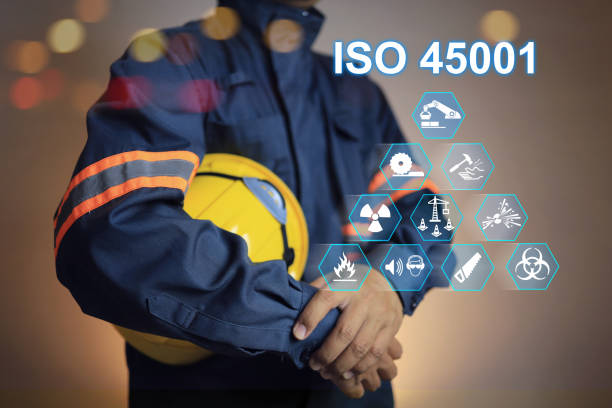HACCP Certification: Everything You Need to Know
If you’re in the food industry, ensuring the safety and quality of your products is not just a regulatory requirement but a responsibility toward your customers. One of the most effective ways to guarantee food safety is by obtaining HACCP certification. But what exactly is HACCP certification, and why is it so important?
In this detailed guide, we will dive deep into everything you need to know about HACCP certification, how it works, and why your business needs it.
What is HACCP?
HACCP stands for Hazard Analysis and Critical Control Points. It is a systematic preventive approach to food safety from biological, chemical, and physical hazards in production processes. By identifying potential hazards and implementing controls to mitigate them, HACCP ensures that food products are safe for consumers.
This approach is globally recognized and often forms the basis of national food safety standards.
What is HACCP Certification?
HACCP certification is a formal verification that a food business complies with the HACCP principles. Certification indicates that your business has identified all potential food safety risks, implemented appropriate control measures, and has a robust system in place for monitoring and correcting any issues that may arise.
In simple terms, HACCP certification shows that your food products are safe for consumption and meet the highest standards of food safety.
The 7 Principles of HACCP
The HACCP system revolves around seven key principles that must be implemented and maintained by any food business seeking certification:
- Conduct a Hazard Analysis
Identify potential hazards that could occur in the food production process. - Identify Critical Control Points (CCPs)
Determine the points in the process where hazards could be controlled or prevented. - Establish Critical Limits for Each CCP
Set the maximum and minimum safe limits for controlling the identified hazards. - Establish Monitoring Procedures
Implement a system for consistently monitoring the CCPs to ensure critical limits are being met. - Establish Corrective Actions
Outline the steps to be taken if monitoring indicates that a critical limit has not been met. - Establish Verification Procedures
Verify that the HACCP system is working effectively and as intended. - Establish Record-Keeping and Documentation Procedures
Keep thorough records of all procedures, monitoring, and corrective actions to ensure transparency and traceability.
Benefits of HACCP Certification
- Regulatory Compliance
Many countries and regions require food businesses to comply with HACCP or equivalent food safety systems. Obtaining HACCP certification ensures that your business meets these legal requirements. - Enhanced Food Safety
HACCP certification improves the overall food safety of your products by systematically identifying and controlling hazards throughout the production process. - Consumer Trust
When customers see that your business is HACCP certified, they know that you prioritize food safety. This can improve your reputation and build trust with your consumer base. - International Recognition
HACCP certification is recognized globally, making it easier to enter new markets and comply with international food safety regulations. - Operational Efficiency
By implementing the HACCP system, businesses often experience improved operational efficiency, reduced waste, and fewer recalls, ultimately saving costs.
How to Obtain HACCP Certification
Here’s a step-by-step guide to obtaining HACCP certification:
- Understand HACCP Requirements
Before starting the certification process, ensure you fully understand the HACCP principles and how they apply to your business. - Implement the HACCP System
Identify the hazards in your production process, set up control points, and establish monitoring systems. Your entire operation should align with the 7 HACCP principles. - Internal Audit
Before applying for certification, conduct an internal audit to identify any weaknesses or areas that need improvement. - Choose a Certification Body
Select a reputable third-party certification body that offers HACCP certification services. These organizations will conduct a thorough audit of your HACCP system. - Certification Audit
The certification body will perform an on-site audit to verify that your HACCP system complies with the requirements. - Obtain HACCP Certification
If your business passes the audit, you will receive HACCP certification, which is typically valid for three years. During this time, periodic surveillance audits will be conducted to ensure continued compliance.
Who Needs HACCP Certification?
HACCP certification is essential for any business involved in the food industry, including but not limited to:
- Food manufacturers
- Restaurants and catering services
- Food packaging companies
- Supermarkets and food retailers
- Dairy, meat, and poultry processing plants
Even smaller food businesses, like local bakeries or cafes, can benefit from HACCP certification, as it improves food safety, reduces risks, and builds customer trust.
HACCP Certification vs. ISO 22000
Some businesses may wonder about the difference between HACCP certification and ISO 22000. While both are focused on food safety, ISO 22000 is a broader food safety management system standard that includes all elements of HACCP but also extends to areas such as communication and continuous improvement. HACCP certification specifically focuses on identifying and controlling food safety hazards. Many businesses choose to pursue both certifications for a comprehensive food safety program.
Conclusion
HACCP certification is crucial for ensuring the safety and quality of food products. Not only does it help your business comply with regulatory requirements, but it also enhances consumer trust and opens doors to international markets. Implementing and maintaining a HACCP system may seem complex, but the benefits far outweigh the efforts.
By becoming HACCP certified, your business demonstrates its commitment to food safety and operational excellence, positioning itself as a leader in the industry.
If you’re ready to take the next step in improving your food safety standards, begin your HACCP certification journey today!







